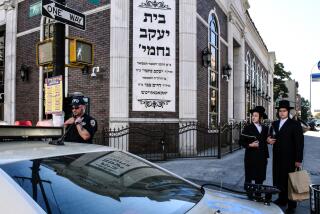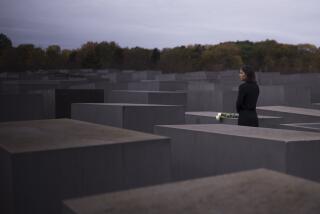Rising Anti-Semitism Feared in Russia
- Share via
Russian President Boris Yeltsin’s appearance this week at the opening of a new $10-million synagogue at Moscow’s huge war memorial complex was an unqualified triumph for Russia’s Jews.
The Memorial Synagogue includes Russia’s first permanent exhibit acknowledging the Nazi Holocaust. In joining a Russian Orthodox church and mosque at the war memorial park, the new synagogue becomes a clear symbol that Russia’s Jews are a religious and political force to be reckoned with.
But for Russia’s estimated 550,000 Jews, Wednesday’s Memorial Synagogue triumph may be short-lived. From here, some Jewish leaders say, the road ahead leads downhill because of Russia’s deepening financial and political crisis.
Already there is talk of a new mass exodus of as many as 60,000 Russian Jews this year alone. In addition, there is concern that increased anti-Semitism--long a hallmark of economic crisis in Russia since the days of the czars--is virtually inevitable.
The money for the project came from the Jewish community, and Yeltsin--who shoehorned the opening into a schedule made tight by his summit meeting with President Clinton--made a surprise speech in which he paid tribute to the thousands of Soviet Jews who perished during World War II.
The wealthy businessmen who financed the synagogue project--chiefly Most Bank’s Vladimir Gusinsky--have been hit hard by Russia’s worsening economic crisis. Moreover, disgruntled Russian nationalists and communists are blaming Jews for their nation’s current problems.
“Unfortunately, some Jewish bankers are associated with corruption in the new system, and right now we have a dangerous confluence of elements that could lead to anti-Semitism,” said Yosef Abramowitz, president of the U.S.-based Union of Councils for Soviet Jews.
“The level of grass-roots anti-Semitic activity in Russia has skyrocketed.”
More to Read
Sign up for Essential California
The most important California stories and recommendations in your inbox every morning.
You may occasionally receive promotional content from the Los Angeles Times.













